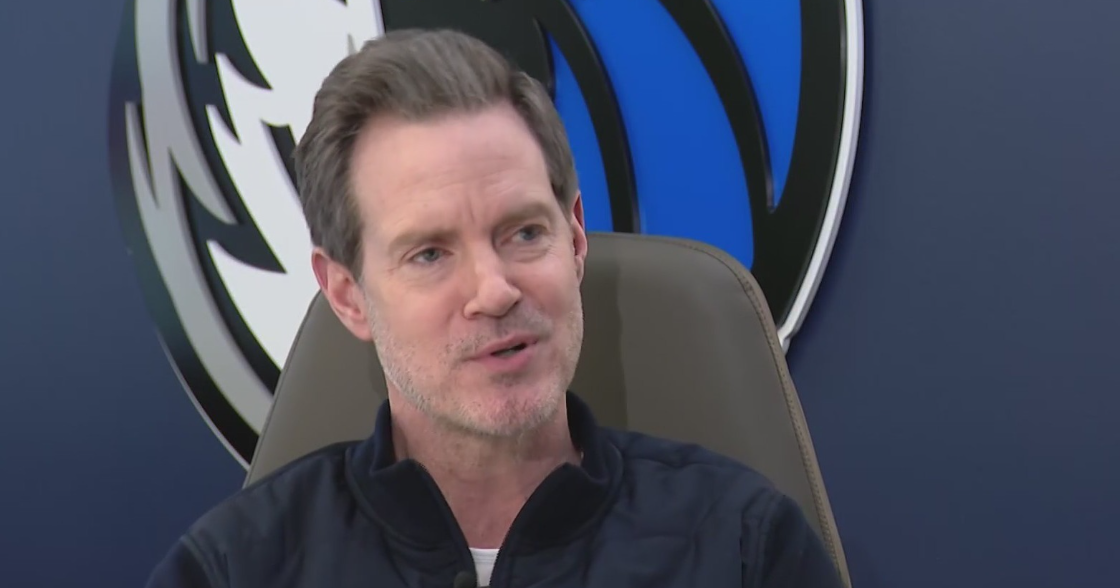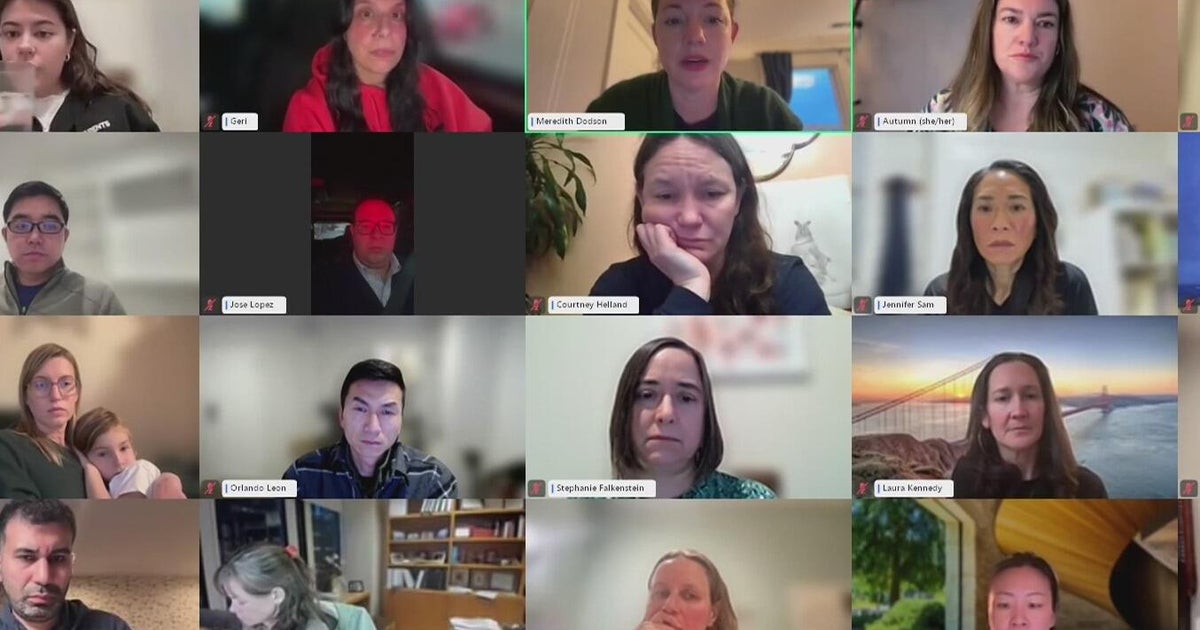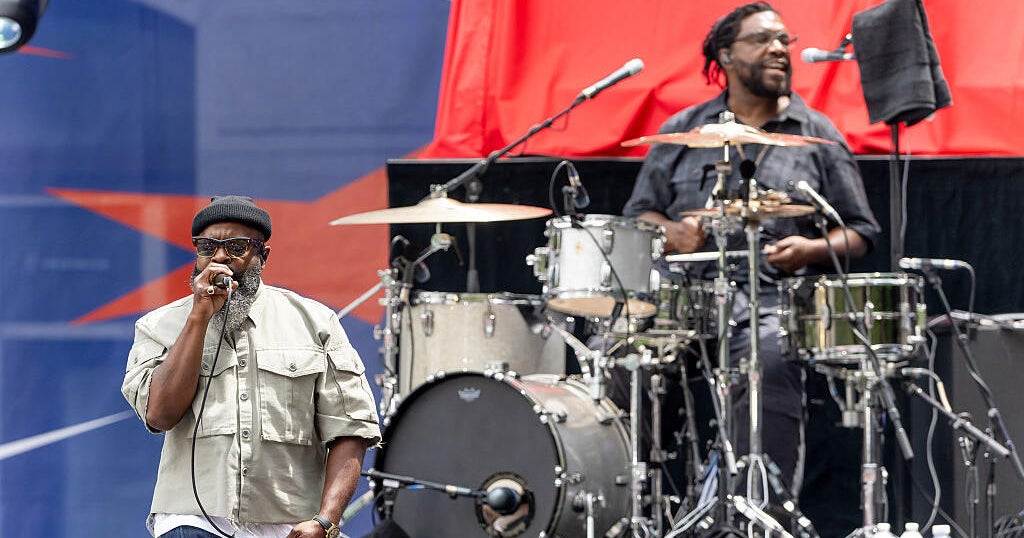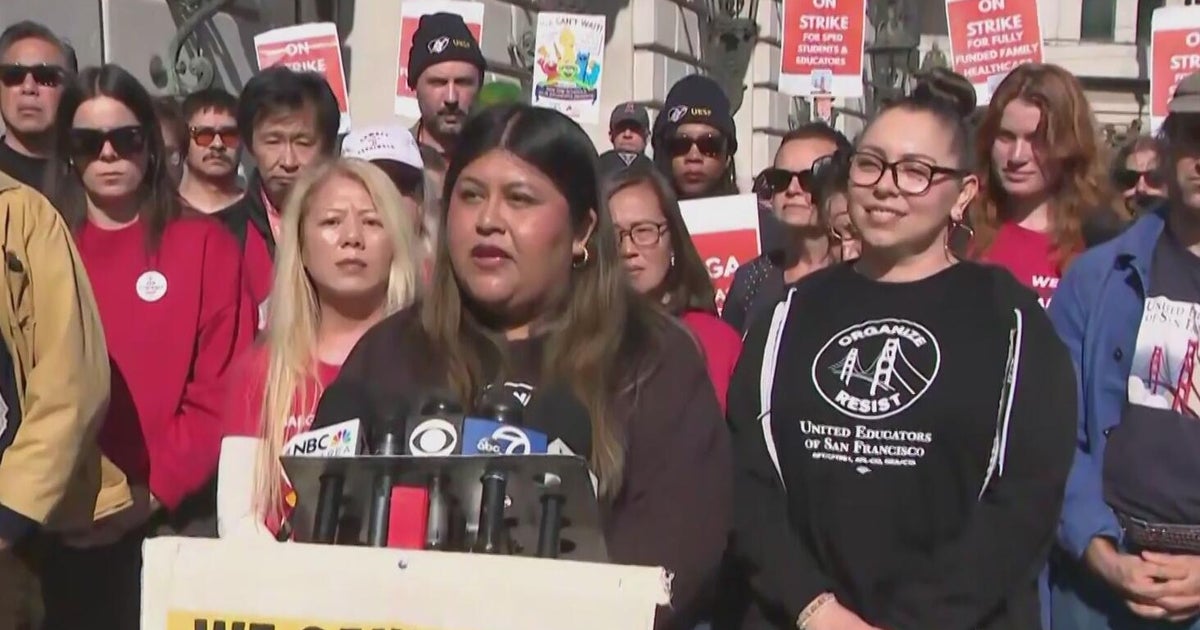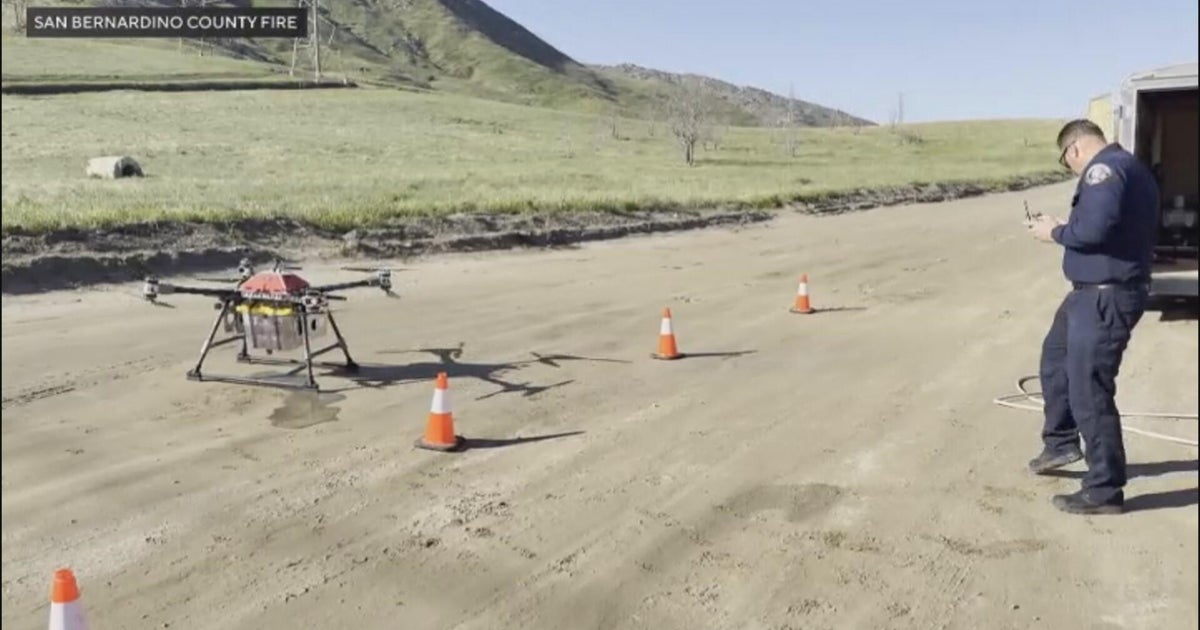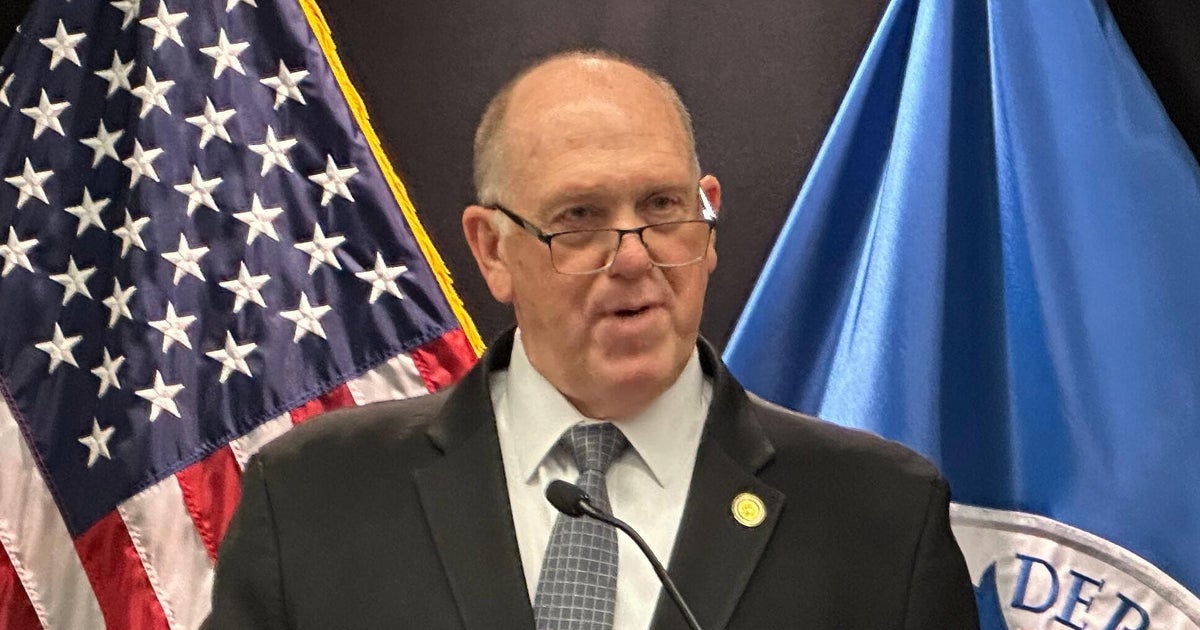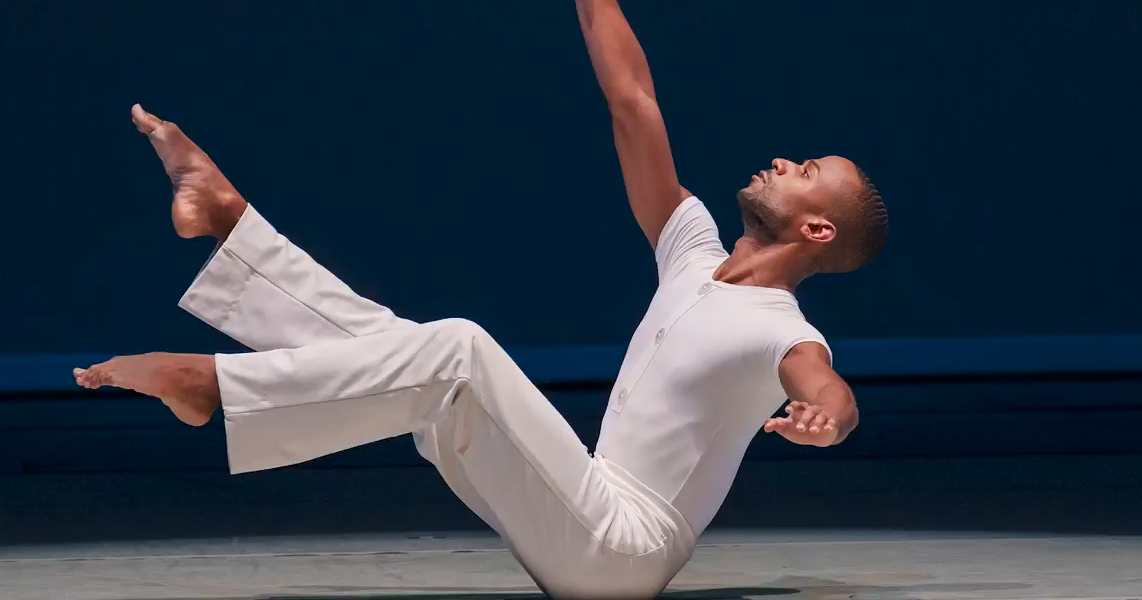CBS SF Talks To Pere Ubu Singer David Thomas
By Dave Pehling
SAN FRANCISCO (CBS SF) -- Along with fellow Ohio-based contemporaries Devo, iconic Cleveland "avant-garage" band Pere Ubu arguably pushed the creative envelope more than another other American group during the first wave of new music that emerged during the mid-1970s punk era.
Rising from the ashes of proto-punk outfit Rocket From the Tombs in 1975, singer David Thomas and guitarist Peter Laughner teamed with guitarist Tom Herman, bass guitarist Tim Wright, drummer Scott Krauss and synthesizer player Allen Ravenstine to form Pere Ubu (two other members of RFTT would form another notable if more straight-ahead punk band, the Dead Boys).
From an initial series of self-released singles that included such harrowing songs as "Heart of Darkness," "Final Solution" and "30 Seconds Over Tokyo" (the later two of which were first performed by Rocket From the Tombs) through their 1978 debut The Modern Dance for short-lived Mercury imprint Blank Records, Thomas and company established an artful, dissonant sound that owed as much to the experiments of Captain Beefheart as it did to the Detroit-bred fury of the MC5 and the Stooges.
Despite a turnover of collaborators, Thomas and Ravenstein -- whose menacing washes of synthesizer were one of the most original and unique components of the band -- a string of albums that, while to harsh for mainstream success, would exert a massive influence on new wave and college rock acts that would follow in their rebellious footsteps through the '80s and beyond.
After the group disbanded in 1982, Thomas would explore solo work and other band projects -- most notably fronting the Pedestrians, which included some Pere Ubu members as well as guitar virtuoso Richard Thompson and drummer Chris Carter of the UK art rock band Henry Cow. But in 1987, work on a Thomas solo album would revive Pere Ubu as a band, producing an official reunion and the more tuneful collection The Tenement Year.
In the almost three decades since then, Pere Ubu has released a steady stream of acclaimed recordings that Thomas has interspersed with other projects including his group David Thomas and Two Pale Boys as well as ventures into theater and opera. While the band is nearing completion of their forthcoming 17th album, the group has embarked on the "Coed Jail Tour" to promote the first two box sets released by Fire Records covering their early years.
The two sets -- Elitism For The People, 1975-1978 and Architecture Of Language, 1979-1982 -- compile remastered versions of the band's first five albums as well as numerous singles, rarities and live tracks. Thomas and the current line-up of Pere Ubu comes to Slim's in San Francisco Tuesday night to perform songs from the era covered by the boxes as part of the West Coast leg of the "Coed Jail Tour." CBS SF recently spoke with Thomas about revisiting the classic material and working their early manager Cliff Burnstein before he started handling Metallica.
CBS SF: The Coed Jail Tour covers a sizable volume of material with the two box sets issued since last year encompassing seven years and more than five albums. Was it difficult to narrow down what songs you'd play?
David Thomas: No. Basically, we turned it over to [founding Pere Ubu guitarist] Tom Herman, who did the first leg of the tour. We said, "What do you want to play?" So he chose the songs with a couple of changes by me. We mostly left it up to one person. He chose and I said, "Eh, all right." Even when we're touring new albums, we've always done old material as well.
Over the years, what you end up doing is you play the easy songs. When you're going out with a new album, you spend most of your time rehearsing the new songs. At the end of rehearsal, you have 15 minutes left and you say, "Well, what can we do? 'Modern Dance.'" So you pick the ones you know how to do and you don't have to rehearse.
I suspect Tom chose a lot of the songs that were easy for him [laughs]. I chose a couple that were hard, so works out. I'm very pleased that the set works quite well. At the beginning I was quite shocked how it all hung together so well.
CBS SF: The band's Latin motto "Ars Longa, spectatatores fugaces" made me wonder to what extent the expectations of the audience enter into the picture when it comes to the songs performed? Do you feel an obligation to play "Final Solution" or "Heart of Darkness" every night?
David Thomas: No, it just happens that those are two damned easy songs to do. Especially "Final Solution." You can't get much easier than that. "Heart of Darkness" has a couple of tricky bits. I supposed if the choice was between doing a really obscure song that's easy to do and a hard song that's popular, we'd probably edge towards the easy one.
But the audience expectations aren't really part of the equation. Any interaction with the audience, we're more likely to want to confound them than reassure them. That has always been the Pere Ubu method. The one particular idea that there is is that you combine two or three or four narrative lines in a song. Some are running in parallel, some are running in oblique angles and some are running in contradiction or deprecation to each other.
If you want to get it as simple as you possibly can, that is and always has been the Pere Ubu method, the Pere Ubu idea: that life isn't a simple equation. That the human experience is one of contradiction and conflicts. That's the nature of human life. It's not simple. Thoughts and feelings are not simple. There's no simple human reaction to anything.
Nobody on the surface of the planet, in the history of humanity, has ever thought, "Oh, my baby's left me. I feel so bad." That's an impossible thought to think. What happens is the screen door slams and you go, "Huh." And you look down and the kitchen floor is dirty and you're thinking, "Jeez, I ought to clean this thing." And then, "The grocery store is closing in five minutes!" On and on and on. It is impossible to think as simply as, "My baby's left me. I feel so bad."
CBS SF: In one of the interviews I came across while preparing for our talk, you mention the band's third album New Picnic Time as a masterpiece, saying "if I had to base my own reputation off of just one album, that would be it." It's definitely one of your more disorienting records. Were you tempted to include more songs from that album for this tour?
David Thomas: No, because we'd settled on the rule that we would do three songs per album. Some of that album is just not doable live. "One Less Worry" is one. To try to do those songs again is a pointless exercise, because we got it perfectly the first time. We were all in the moment together and it happened and that's the end of the story.
So there are a couple of things on New Picnic Time that were like that. New Picnic Time is as close to the flame as this band moth has ever gotten. I don't know if anyone else has gotten much closer than that. But then, we didn't try to keep doing that, probably very wisely. We went on to other things and other themes and other projects.
The next box that's coming out, Drive He Said, which is from Ray Gun Suitcase to St. Arkansas, I'm very proud of. If I ever had to chose a "Great American Novel," I've often said is Life on the Mississippi by Mark Twain. If you know the book Life on the Mississippi , then you know that those three albums are my Great American Novel.
CBS SF: I was wondering if you the band was going to continue with the box set series or if you had an album of new material in the works...
David Thomas: The new album is almost done. It's called 20 Years in a Montana Missile Silo. I expect to be mixing it in January or February, though I'm not keen on going back to Cleveland in the winter, so I may delay it a little. So it is nearly done. We started this process or paradigm a few years ago where normally, Pere Ubu does an album, goes out on tour and disappears for two years to make another album.
The box set reissue project came along and allowed us to do what we're going now, which is to put out an album and then, instead of disappearing while we're working on the new album, we go out promoting the box set. We've been working on the new album for a year, year and a half. But we've also been playing the old material.
So to us, it's a perfect situation. Because A, we love playing the old stuff. We love playing the new stuff. We love playing the stuff. B, it's a lot of ... well, fun is not a word you use with Pere Ubu, but with that understanding, it's fun to do this stuff, because they are great songs. And most importantly, it keeps us working together instead of kind of disappearing. It helps the band functionality to keep working together.
CBS SF: I also ended up listening to some of your releases I was completely unfamiliar with, including the two early '80s albums you did with the Pedestrians. You've talked about your enjoyment working with Richard Thompson in that band. Have you had a window of time where you've approached him to collaborate again? You're both stay pretty busy between touring and recording...
David Thomas: Well, there's all sorts of things I've enjoyed. I really enjoyed working with Linda Thompson. It kind of started with an album and then it twisted off [they collaborated on the album Mirror Man in 1998 that was presented as a theatrical production several times]. But while you might call someone up and say, "Hey, do you want to go blah blah and blah blah? Yeah!" But in practical terms, those things are really difficult. It is really rare circumstances where everything comes together in a particular way.
So yeah, I'd love to. Do I think it's really likely to happen? No. Because even if we set out to do it, there'd be so many...not obstacles, but curves to the path. When something like that happens, it's like an explosion. It happens immediately and it's gone.
CBS SF: So how far ahead do you map things out? Do you already know when you'll be doing your tour for the next new album and maybe another box set tour after that? And possibly where you would fit in more work with Rocket From the Tombs?
David Thomas: No, we're not that efficient. I imagine if I do end up mixing the album in the winter, we'll be touring in the fall six months later when it's out. That's how it works. I don't know if there will be a box set tour for box set four, which is Drive, He Said. Actually, we're ready to begin work on box set number three, which is the Fontana years. That will come out in the fall.
So I suspect not, but who knows? I'm afraid I'm not really capable of working that far ahead. I don't plan like that. I start planning when I look at Paul [Hamman, Pere Ubu's longtime recording engineer] at Suma Studio and say, "Well, we're done!" And then I start planning things.
I've always feared making plans when it's not done, because then you're tempted to shortchange things because there's a schedule all of a sudden and you've got to get it out. I really fear that sort of situation. I don't plan the next step until the previous step is in concrete.
CBS SF: Another thing that I learned was that Cliff Burnstein was your manager during the late '70s and was already handling Def Leppard after you recorded Dub Housing. At the time, did it seem strange that he was working with both you and these young British metal upstarts? How much longer did your relationship last with him?
David Thomas: What his dream for us was is what he managed to achieve with Metallica. He knew what he was doing. Cliff is a brilliant man. I'm ever so thankful he came along when he did for us. He basically secured our eternal future. For as long as we want to work, because of his foundation, we can do it.
His vision for us was his vision for Metallica. We just didn't have what it took in a lot of ways. Because mainly we have a bad attitude, which is our characteristic. We still have a bad attitude. We're going to do what we want. I don't care. I'll pay the price. I've paid the price for 40 years. I just don't care.
And now it's even better, because I'm an old man and I really don't care. I've got, what -- ten or 15 years to go? What the hell! I can drift into the grave on my royalties. I'm free. There's not that many people who have lasted this long. There are very few who still work. And when I talk to those people, thankfully a lot of those people have the same attitude. "I've made it this far. What the hell do I care?" [laughs]
CBS SF: There's a great deal of liberation in that I'm sure...
David Thomas: But that's the same liberation that we started out with. When I was 19, that's how I felt. In Cleveland, it was very clear to us that there was no hope that anyone would ever hear what we did. There was no hope that we'd ever play anywhere except really run down bars that nobody was going to.
When you start out that way and it's really ingrained in you that nobody is ever going to like what you do and nobody is ever going to hear it, you may as well do what you want to do. Because what's the difference. So by the time we had a record deal, we were already firmly entrenched. There was no possibility of being concerned at all about making a commercial success just for the purpose of a commercial success.
We weren't noble about that. It's not admirable. You could easily say that we were just spoiled middle-class kids who could do anything in life more successfully than this. If you have the realization that I can do anything with my life, then what's the temptation? There is no temptation that can be placed in your way, because...What the hell? If I don't get to do what I want to do, I'll do something else.
CBS SF: You mentioned the trio of albums to be featured in the Drive He Said box set as being your Great American Novel, but you were writing about music from your late teens and have done a number of theatrical projects. Have you ever considered writing fiction as a creative avenue?
David Thomas: No. It's a nice idea and over the decades people have tried very hard to encourage me to do it, but I simply don't have any interest in it. Music in the way that I write music or participate in music or whatever I do with music fulfills every desire I have in that field. I am incredibly suited to creating stories in the way that I do.
I could write short pieces -- and by short pieces, I mean something on the level of a poem. I don't do poetry at all. I do not do damned poetry! But I can write a little story and other people would say, "That's poetic!" Yeah sure. I like to get in and get out.
CBS SF: Are you familiar with the New York production of "Ubu Sings Ubu?" I was wondering if you had seen it and what your reaction to it was...
David Thomas: I haven't been able to catch a performance, but other people in the band have seen it, and they like it. I've communicated with Tony Torn [lead performer and director of "Ubu Sings Ubu"] and on and on. But the circumstances are that I've just never been at the same place in the U.S. at the same time he's doing something. Someday I'm sure I'll see it, I'm sure. There's a vague plan that my management has that may facilitate that. So not yet, but I'm looking forward to it.
CBS SF: So when I found out I was going to talk to you, I put it out there to my Facebook hive mind since I have a lot of music nerd friends, "Hey, who out there has a question for David Thomas that isn't going to make him hang up on me?"
David Thomas: This whole thing about me being a difficult interview is ridiculous. Has this been a difficult interview?
CBS SF: No, not at all...
David Thomas: Exactly! It's like every one of my damn interviews is, except if you're some utter idiot is saying, "What's your favorite color?" And I'm thinking to myself, "You ass----! You're talking to David Thomas, and you're asking me what my favorite color is?" That's the only time I might start being a bit aggressive in an interview.
CBS SF: Well, the one topic that came up a couple of times was about your appearance on the late '80s NBC show "Night Music" hosted by saxophonist David Sanborn. The show was just too good and too weird to last on network television. I was wondering if you had any recollections about the episode you appeared on?
David Thomas: I remember it. We did the piece with Debbie Harry. I think she did "Waiting For Mary" or something with us. I remember going into her dressing room and it was done up all Debbie Harry style and meeting her and Chris [Stein, Harry's partner in Blondie]. It was very enjoyable. I didn't even mind David Sanborn playing on all the songs. "You want to play? Yeah, go ahead."
At the time I was doing a number of things with Loudon Wainwright III. We did some shows in London with a supergroup that had Loudon Wainwright and me and David and Don Was and Guy Chambers. And Guy Chambers, if you're a real trivialist, is the guy who wrote all of Robbie Williams' big hits. When you talk a supergroup of weird people, it was a pretty intense group.
CBS SF: The last thing I was going to ask about was another Facebook-related question. Last week you posted that you were watching a bunch of Steven Seagal's more recent movies to get ready for the tour?
David Thomas: Yeah! Last week I watched all of his post-2000 movies. I had a great time! I don't have a TV and I just have Netflix, so I thought, "Ok, I'm desperate. I'll watch this." Because I needed something stupid to watch. And I really had a good time! I thought, "Boy, this is exceptional! I think I'll watch another one." They're all the same. I highly recommend them.
It's not like I'm laughing at them or anything. It's just classic stuff in terms of who he at this time of his life, the production methodology, the whole use of Eastern European money tied in with making Moldova look like a wonderful place to go visit. At the same time having this crime story so they get the Russians to be the bad guys, which of course is their old enemy.
And the fight scenes! Steven has put on a bit of weight and he's a bit old. But it's all done really cleverly, so he really only waves his arms and things like that. Just from a technical standpoint of making the movie, it's almost like watching an Orson Wells movie. There's this incredible mastery that has gone into making this cheap, meaningless piece of trash movie, but at the same time maintaining an interest for somebody like me.
It's like when you watch "Citizen Kane," you analyze all the camera angles and what he's doing and the narrative flow and how it's working. You notice all of the craft of putting the movie together. Which, if you're ever going to have a criticism of "Citizen Kane," it's the criticism that it's like jazz in certain ways. That it's technique. It's like opera or classical music where you're looking at it and going, "Wow! That technique is great!"
Whereas later Orson Wells films, where he doesn't have the money and it's a totally different situation, what you're excited by is the vision of it or the poetry of it. So that's my take on Steven Seagal. He's got this gig. I'm not being critical of him. I'm just stating the facts.
Pere Ubu perform at Slim's in San Francisco on Tuesday, Dec. 6, 7:30 p.m. $25. Obnox opens the show.
